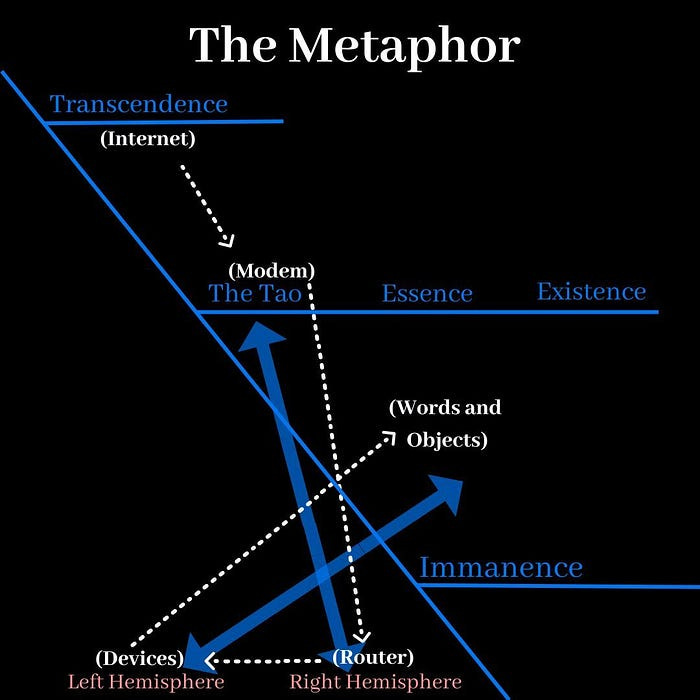Flourishing in Post-Modernity
I write about understanding and flourishing in postmodernity. My framework focuses on modernity’s damaging premises, how they affect culture and politics and individuals, and how to counteract them and even flourish in the postmodern world.
I publish new material every Monday, either here or on my related page: “Eric Scheske’s Substack.”
Details
Wisdom wants to know reality. A region of reality (“the Tao”) isn’t knowable. Wisdom respects reality’s unknowability while pursuing reality nonetheless.
This unending pursuit reached its apex in the 13th century, then the pursuit started to decline. Modernity was the rejection of respect for the Tao. Postmodernity is the rejection of the rejection.
Parts
“Existence Strikes Back” is divided into four parts:
What is the Tao? Also called “the act of existence (actus essendi),” “the first principle of Zen,” and the region on the other side of Aldous Huxley’s doors of perception. This part emphasizes “The Reality Spectrum”:
The Tao-->Essence-->Existence
Modernity rejected the Tao portion of the Reality Spectrum and focused almost exclusively on the “essence” part of the Reality Spectrum: things we can count, measure, and understand through reason and logic. “The Great Rejection.”
This rejection is a rejection of reality, but reality can’t be denied so the Tao keeps bubbling to the surface, often in troubling, but occasionally good ways.
How to get the Tao back into one’s life. Also called, “How to flourish in modernity despite modernity.” It features a lot of advice for re-asserting one’s right hemisphere (our modem for the Tao and, therefore, “ground zero” for our fight against modernity).
Themes
The Tao: its Reality and its Nature. The Rise of Essence/The History of How Western Civilization Lost the Tao. How the Tao Can’t be Denied and Continues to Manifest Itself.
Sub-Themes
The Act of Existence. The Reality Spectrum. Paradox. The Intuition of Being. Hugh Kenner. G.K. Chesterton. Taoism. Zen. Thomas Aquinas. Etienne Gilson. Skepticism. Descartes. Francis Bacon. Eric Voegelin. Gnosticism. Progressivism. Marxism. The Occult. LSD. Aldous Huxley. Jacques Derrida. Fyodor Dostoyevsky. Albert Camus. Therese Lisieux.
To find out more about the company that provides the tech for this newsletter, visit Substack.com.




